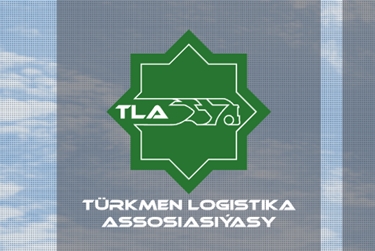Turkmenistan’s logistics sector is strengthening its regional ties with the signing of a Memorandum of Understanding (MoU) between the Turkmen Logistics Association and Russia’s Afanasy Nikitin Association in February 2024.
This cooperation aims to develop the forwarding and transport logistics industries in both countries and the wider region, writes Akmukhammet Yusubov, senior coordinator of the Association “Turkmen Logistics”, in his article, published in “Neutral Turkmenistan” newspaper.
The Turkmen Logistics Association already has established partnerships with nearly 20 organizations across Europe, Asia, and the CIS.
The Afanasy Nikitin Association, on the other hand, focuses on agricultural and logistics projects within the Volga-Indian Ocean transport corridor (transport corridor North-South). Their key project facilitates the export of agricultural products from the Volga and Caspian regions to countries bordering the Persian Gulf and Indian Ocean. For foreign partners, this project provides access to the domestic Russian market and opportunities to enter the agricultural, transport and logistics business in Russia.
For Turkmenistan, this partnership holds significant strategic value. Strengthening transport connectivity aligns perfectly with their goal of developing regional trade and economic integration, especially in light of the current geopolitical climate. The country’s transport sector is already one of its fastest-growing economic engines.
Afanasy Nikitin Association has extended an invitation to their Turkmen partners to participate in the upcoming “Transport Logistics of the Caspian Region 2024” forum in Astrakhan, Russia. This event, scheduled for April 2024, will focus on developing business strategies amidst global cargo flow shifts and the transformation of the Caspian region into a major hub within Greater Eurasia’s transport network.
Discussions will center on practical steps to integrate the transport systems of the Caspian CIS countries and Turkmenistan. Additionally, establishing sustainable international transport and logistics chains within the North-South transport corridor will be a key area of focus.
In this context, experts’ assessment of Turkmenistan’s port infrastructure is particularly relevant and highly appreciated at the moment. As known, two of the three main routes identified in the North–South corridor development strategy, pass through Turkmenistan. These routes include the Trans-Caspian route (links Russian ports of Astrakhan, Makhachkala and Olya with Turkmen and Iranian ports) and the eastern route (road and rail through Kazakhstan and Turkmenistan).
Experts acknowledge that Turkmenistan’s development plans align perfectly with the need to manage increasing cargo flows. The country’s freight yards and facilities at the Etrek station are equipped to handle transshipment of goods between broad gauge railways and those of Iran. This capability positions Turkmenistan to become a crucial transport hub for East-West, North-South, and vice versa routes in the future.
Thus, for the international North–South transport corridor, the involvement of Turkmenistan’s logistics potential opens up new systemically significant development prospects and will make it possible to more effectively form global logistics routes and supply chains along the North–South corridor, in which Turkmenistan plays an increasing and undeniable role, Yakubov concludes. ///nCa, 22 March 2024
